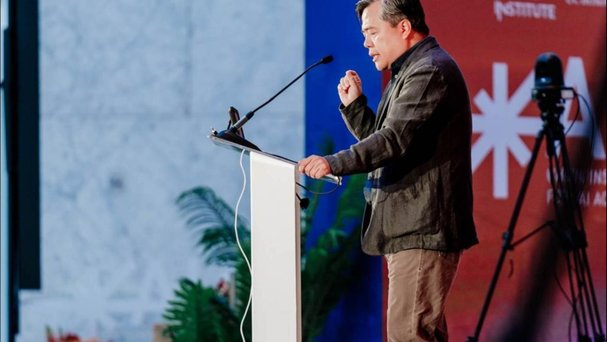TMTPOST--“Capital eschews no profit, or very small profit, just as Nature was formerly said to abhor a vacuum. With adequate profit, capital is very bold. A certain 10 percent will ensure its employment anywhere; 20 percent certain will produce eagerness; 50 percent, positive audacity; 100 percent will make it ready to trample on all human laws; 300 percent, and there is not a crime at which it will scruple, nor a risk it will not run, even to the chance of its owner being hanged,” Karl Marx’s words apply perfectly to today’s cosmetic loans market in China.
In recent years, the medical beauty industry has grown into a big consumer market. According to data from iiMedia Research, China's medical beauty market reached 493.4 billion yuan in 2022 and is poised to exceed 800 billion yuan by 2025, with a compound annual growth rate of 14.37%.
Alongside this growth, various cosmetic loans, installment loans for beauty treatments, and similar financing options have emerged. Even amid the current low-interest rate environment, high interest rates are common when it comes to cosmetic loans.
A series of regulatory measures have been rolled out to strengthen supervision and crack down on illegal medical beauty services. However, cosmetic loans with annualized rates exceeding 24% are still prevalent. Some beauty institutions even take risks by skirting the edges of pyramid schemes to seek high profits.
Currently, cosmetic loans are not illegal per se. As a form of consumer loan, they fall under the regulations governing consumer credit, with a 24% annualized interest rate cap.
According to data from TMTPost, personal consumption loan interest rates vary by application channel. Bank personal consumption loans typically have monthly interest rates between 0.5% and 1.5%; regulated financial institutions' loans usually have monthly rates below 1.5%; online lending platforms' personal loans generally have annualized rates above 10%, typically not exceeding 24%, translating to monthly rates between 1.5% and 3.5%.
Most cosmetic loans are taken out on online lending platforms. In reality, consumer loans from banks can also be used for cosmetic purposes, as banks often do not inquire about the loan's use, focusing more on timely repayment. This raises the question of whether those who borrowed at 20% or even 30% annualized rates regret their decisions.
“The best way of managing wealth for a woman is to put their money in a medical beauty institution,” the head of a medical beauty institution in Beijing CBD area told a reporter from TMTPost.
“But I don’t have money, I just need to do some simple facial sessions,” the reporter shrugged it off. Upon hearing that, the head wearing heavy make-up grabbed the reporter’s phone while saying, “let me tell you some borrowing channels with low-interest rates, it’s really good for a young lady like you.”
In the TV series "Regeneration," the protagonist’s first love, Zhang Xuan, undergoes cosmetic surgery to better integrate into society, using credit cards and subsequently online loans, each procedure costing tens of thousands of yuan. This financial burden is far beyond what a university student can bear, ultimately leading her to resort to illegal means to repay the debt.
Such stories are not uncommon in real life. A former employee of a medical beauty institution told TMTPost that in less regulated “underground” beauty clinics, loans with monthly interest rates above 5% are common. Annualized rates exceeding 24% are not in compliance with law, yet still prevalent.
Cosmetic clinics often use several steps to lure clients into taking out loans. First, they conduct consultations, pointing out skin or body issues without quoting prices, creating tension and anxiety. They then recommend various products and plans. If the client agrees, they move to the payment stage, where multiple managers calculate costs, mixing original prices with confusing discounts. In the end, the total price, often in the tens of thousands, will be presented just within the client’s expected spending limit, enticing them to sign the loan agreement.
Cosmetic loans typically fall into two categories. The first is “high-interest loans,” targeting young, inexperienced individuals eager for getting pretty. These loans exploit their “lack of cash flow, desire for secrecy from family, and naivety.” The second category involves job-related cosmetic loans.
On international social networks, similar scams are evident, where employees are required to undergo cosmetic surgery. These scams often target young, inexperienced individuals. A medical beauty employee recounted hearing about such cases, where new recruits to a beauty clinic were coerced into signing cosmetic loans under the guise of job requirements.
In this situation, no actual cosmetic procedures are performed, but loans are still taken out. Beauty companies may charge for training sessions, requiring new employees to sign cosmetic loans to cover costs. Additionally, companies might require employees to purchase goods through the company's e-commerce platform using these loans, with no actual product delivery, effectively cashing out the loan.
TMTPost identified 24 channels through which cosmetic loans can be obtained, including commonly used apps. Platforms like “XX Second Loan” and “XX Installment” appear to offer legitimate installment and consumer loans but often partner with aesthetics medicine companies to deceive consumers.
Given the complexities and risks, consumers should thoroughly understand the implications and risks of cosmetic loans or any consumer credit. It's crucial to assess the lending institution's qualifications and ensure the loan interest rate does not exceed the legal 24% annualized rate.
The desire for good-looking is reasonable and common, and young people are prone to fall into these traps. However, it is essential to seek advice from friends and family and raise awareness about scams to prevent cosmetic loans from becoming a stumbling block on the path to attractive appearances.















